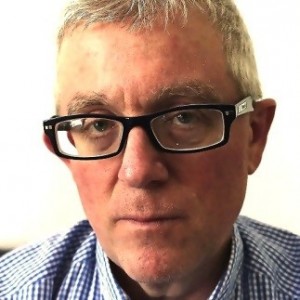Ger DUIJZINGS
Ger DUIJZINGS
Universität Regensburg
Dark emotions
This keynote presentation will explore the anthropological significance of the darker side of people’s moral existence, by discussing unpleasant and socially toxic emotions such as anger, disgust, contempt, rancor, bitterness, envy, fear, grief, vengefulness, resentment, and hatred. I will argue that the tumultuous times we live in, characterised by xenophobia, resentment and populist outbursts, now urges us to develop an anthropological sensibility of ‘dark emotions’, going beyond the usual cultural, ideological, or political frames of analysis. In my long-term ethnographic engagement with the region, having carried out fieldwork in Kosovo and Bosnia from the middle of the 1980s until the early 2000s, I have been often confronted with emotions like these, and have started to take them more seriously as part of the explanation of current and historical events. I will illustrate this with my micro-historical work on eastern Bosnia and the perpetrator research I have started to carry out in the context of the Srebrenica massacre. I will not only explore how we can integrate these ‘dark emotions’ into our conceptual frameworks — by starting to think about them ‘sociologically’ or ‘anthropologically’, building on the work of psycho-analysts such as Melanie Klein and Jacques Lacan — but also reflect on how we ourselves may be affected by such emotions as human beings and researchers.
SHORT BIOGRAPHY
Ger Duijzings is Professor of Social Anthropology (with a focus on Southeastern Europe) at the University of Regensburg, and Principal Investigator at the Graduate School for East and Southeast European Studies (LMU Munich and University of Regensburg). Before he was Reader in the Anthropology of Eastern Europe (2005-2014) and Lecturer Serbian and Croatian Studies (1996-2005) at the UCL School of Slavonic and East European Studies in London. He has been exclusively working in interdisciplinary ‘area studies’ environments, and has extensive experience teaching anthropology to non-anthropologists.
As a postgraduate student he specialised in religious and political anthropology, carrying out research in the former Yugoslavia. He did his first fieldwork in Kosovo in 1986 exploring popular Islam and dervish orders. As a doctoral student he continued carrying out fieldwork in Kosovo during 1991 and 1992, exploring mixed pilgrimages in the context of rising ethno-religious tensions and nationalist conflict. During his 1992 fieldwork in the Catholic Croat enclave of Letnica, he became first-hand wittness of processes of ethno-demographic engineering, leading to the local Croats’ exodus and resettlement in Croatia. His doctoral research resulted in the book Religion and the Politics of Identity in Kosovo (London: Hurst, 2000). Together with visual artist Rastko Novakovic, he also made an experimental film based on his fieldwork in the former Yugoslavia in 1992.
Between 1997 and 2002 he was member of the Srebrenica Research Team of the NIOD Institute for War, Holocaust and Genocide Studies, carrying out an official inquiry into the fall of the UN Safe Area of Srebrenica, and the massacre of 8000 Muslim men in July 1995. As a member of the team, he concentrated on the local dynamics of events before and during the war. He published his research in the form of a monograph and annex to the main report (Geschiedenis en herinnering in Oost-Bosnië, Amsterdam: Boom, 2002), as well as two chapters in the main NIOD report on the humanitarian and political situation in the besieged Srebrenica enclave and UN Safe Area during the war. After completion of the NIOD report, he continued to explore the aftermath of the Srebrenica massacre, for a book he co-edited (with Xavier Bougarel and Elissa Helms): The New Bosnian Mosaic: Identities, Memories and Moral Claims in a Post-War Society (Aldershot: Ashgate, 2007). Between 2002 and 2004, he was also researcher and expert witness for the International Criminal Tribunal for the former Yugoslavia of the United Nations.
Since the late 2000s, he has moved into the urban studies field, researching urban transformations and inequality in post-socialist Bucharest, as well as exploring new innovative and experimental urban research methodologies (in collaboration and conversation with film makers, artists, geographers and architects). His urban studies work has resulted in the edited volumes, Cities Methodologies Bucharest (2011), Global Villages: Rural and Urban Transformations in Contemporary Bulgaria (2013), Engaged Urbanism: Cities & Methodologies (2016), and most recently, a special issue on urban ethnography for Südosteuropa: Journal of Politics and Society (2018
